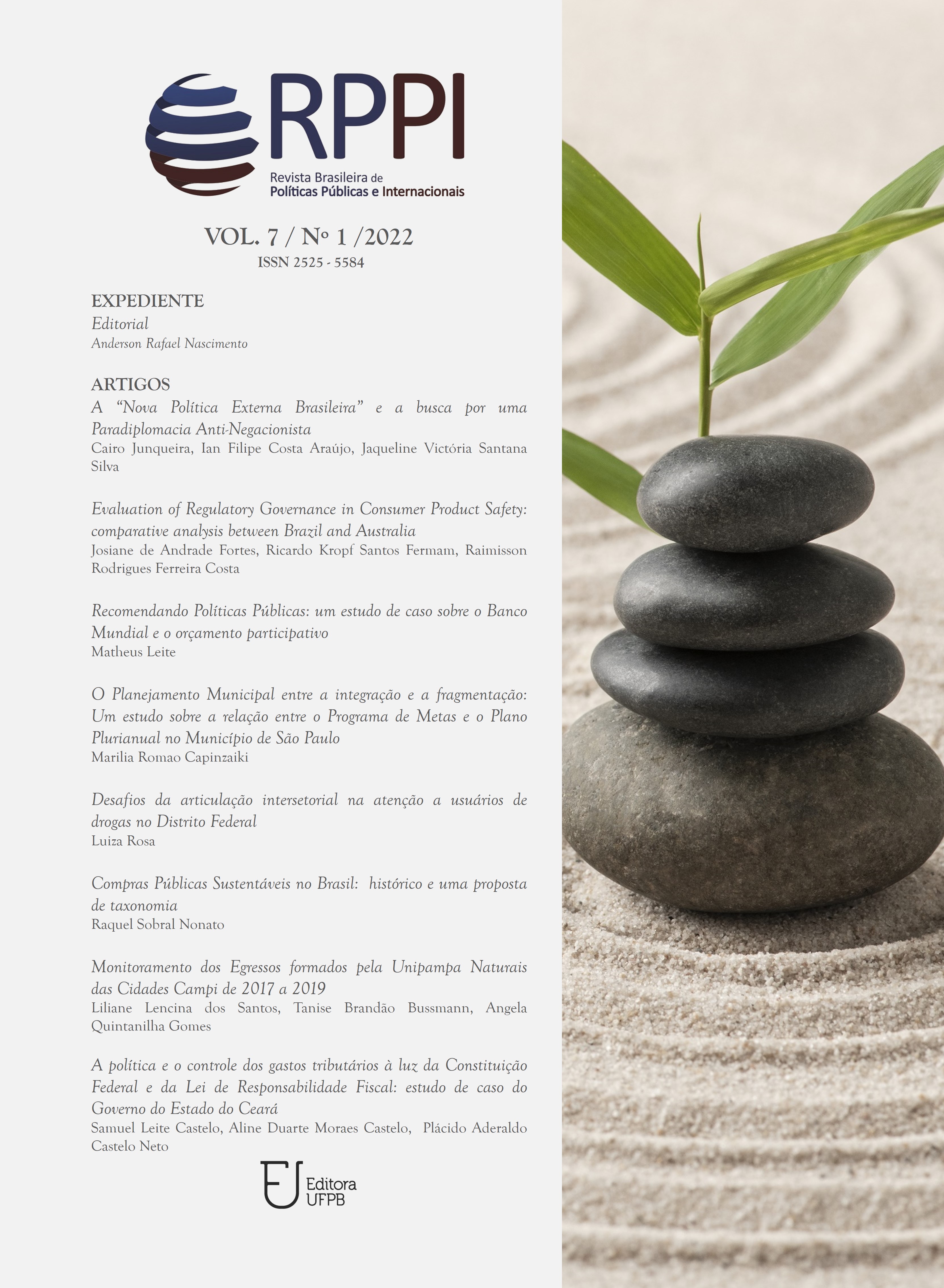A “NOVA POLÍTICA EXTERNA BRASILEIRA” E A BUSCA POR UMA PARADIPLOMACIA ANTI-NEGACIONISTA
DOI:
https://doi.org/10.22478/ufpb.2525-5584.2022v7n1.61271Keywords:
Paradiplomacia, Governos Estaduais, Consórcio Nordeste, Política Externa Brasileira, Governo BolsonaroAbstract
Subnational governments, such as Brazilian cities and states, are occupying spaces and acting directly in activities that previously were states domains. Jair Bolsonaro’s election has changed many governmental aspects, and foreign policy represents a sphere of great turnaround. The article’s hypothesis is that the less conciliatory and progressively aggressive tone added to an agenda of the so-called "New Brazilian Foreign Policy" between 2019 and 2021 promoted federative imbalances that clashed with subnational governments’ interests. Consequently, states have increased their projections and international dialogues, generating new attributes to this process commonly called paradiplomacy. This was the case of northeastern states that, through the Northeast Consortium, promoted opposite international actions in relation to the central government. Based on bibliographic review and prospection of news media, this article aims to demonstrate that such international actions were alternatives adopted in opposition to the guidelines of Bolsonaro's foreign policy and Ernesto Araújo’s diplomatic agenda. The debate and the investigation support contemporary studies on subnational actors in Brazil, bringing light to a new phase of paradiplomacy often framed as a practice of contestation, antagonism, or confrontation to the central government, dismaying of denialist discourses.
Downloads
Downloads
Published
Issue
Section
License
Copyright (c) 2022 Cairo Junqueira, Ian Filipe Costa Araújo, Jaqueline Victória Santana Silva

This work is licensed under a Creative Commons Attribution 4.0 International License.
Autores que publicam nesta revista concordam com os seguintes termos:- Autores mantém os direitos autorais e concedem à revista o direito de primeira publicação, com o trabalho simultaneamente licenciado sob a Licença Creative Commons Attribution que permite o compartilhamento do trabalho com reconhecimento da autoria e publicação inicial nesta revista.
- Autores têm autorização para assumir contratos adicionais separadamente, para distribuição não-exclusiva da versão do trabalho publicada nesta revista (ex.: publicar em repositório institucional ou como capítulo de livro), com reconhecimento de autoria e publicação inicial nesta revista.
- Autores têm permissão e são estimulados a publicar e distribuir seu trabalho online (ex.: em repositórios institucionais ou na sua página pessoal) a qualquer ponto antes ou durante o processo editorial, já que isso pode gerar alterações produtivas, bem como aumentar o impacto e a citação do trabalho publicado (Veja O Efeito do Acesso Livre).




_.jpg)






.png)


.jpg)
_.png)
